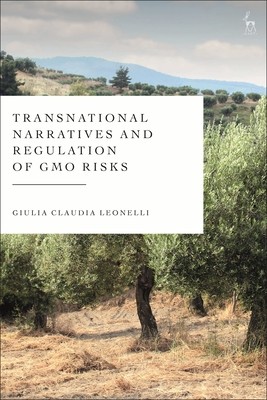
- We will send in 10–14 business days.
- Author: Giulia Claudia Leonelli
- Publisher: Hart Publishing
- ISBN-10: 1509954449
- ISBN-13: 9781509954445
- Format: 15.6 x 23.4 x 1.7 cm, softcover
- Language: English
- SAVE -10% with code: EXTRA
Transnational Narratives and Regulation of Gmo Risks (e-book) (used book) | bookbook.eu
Reviews
Description
This book provides an innovative insight into the regulatory conundrum of genetically modified organisms (GMOs), deploying transnational legal analysis as a methodological framework to explore the most controversial area of risk governance.
The book deconstructs hegemonic and counter-hegemonic transnational narratives on the governance of GMO risks, cutting across US law, EU law, the WTO Agreement on Sanitary and Phytosanitary Measures, and hybrid standard-setting regimes. Should uncertain risks be run unless adverse effects have been conclusively established, and should regulators only act where this is cost-benefit effective? Should risk managers make a convincing case that a product or process is safe enough for the relevant uncertain risks to be socially acceptable? How can intractable transnational regulatory conflicts be solved? The book complements a close analysis of regulatory frameworks and case law with a more encompassing perspective on the political, socio-economic and distributional implications of different approaches to the regulation of health and environmental risks at times of globalisation. The GMO deadlock thus becomes a lens through which to investigate the underlying value systems, goals, and impacts of transnational discourses on risk governance. Against this backdrop, the normative strand of analysis points to the limited ability of science and procedural deliberation to generate authentic agreement and to identify normatively legitimate solutions, in the absence of pre-existing shared perspectives.EXTRA 10 % discount with code: EXTRA
The promotion ends in 19d.18:10:22
The discount code is valid when purchasing from 10 €. Discounts do not stack.
- Author: Giulia Claudia Leonelli
- Publisher: Hart Publishing
- ISBN-10: 1509954449
- ISBN-13: 9781509954445
- Format: 15.6 x 23.4 x 1.7 cm, softcover
- Language: English English
This book provides an innovative insight into the regulatory conundrum of genetically modified organisms (GMOs), deploying transnational legal analysis as a methodological framework to explore the most controversial area of risk governance.
The book deconstructs hegemonic and counter-hegemonic transnational narratives on the governance of GMO risks, cutting across US law, EU law, the WTO Agreement on Sanitary and Phytosanitary Measures, and hybrid standard-setting regimes. Should uncertain risks be run unless adverse effects have been conclusively established, and should regulators only act where this is cost-benefit effective? Should risk managers make a convincing case that a product or process is safe enough for the relevant uncertain risks to be socially acceptable? How can intractable transnational regulatory conflicts be solved? The book complements a close analysis of regulatory frameworks and case law with a more encompassing perspective on the political, socio-economic and distributional implications of different approaches to the regulation of health and environmental risks at times of globalisation. The GMO deadlock thus becomes a lens through which to investigate the underlying value systems, goals, and impacts of transnational discourses on risk governance. Against this backdrop, the normative strand of analysis points to the limited ability of science and procedural deliberation to generate authentic agreement and to identify normatively legitimate solutions, in the absence of pre-existing shared perspectives.

Reviews